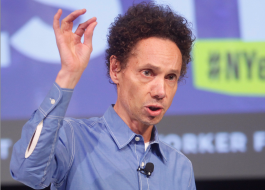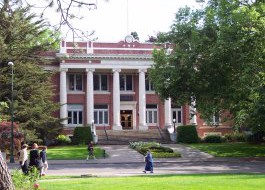
Donating money to a university sounds like an inherently positive action, or at least a benign one — but that's certainly not always the case, Malcolm Gladwell argues.
The best-selling author and host of the hit podcast "Revisionist History" made what he perceives to be the moral injustice of gifts to wealthy universities one of his crusades last summer when he attacked billionaire hedge fund investor John Paulson after Paulson donated $400 million to Harvard University's engineering school.
It's the largest donation in the university's history, and Harvard renamed the school the John A. Paulson School of Engineering and Applied Sciences in his honor.
Gladwell went on a tweetstorm after the news broke, sarcastically writing, "If billionaires don't step up, Harvard will soon be down to its last $30 billion."
A year later, he dedicated a podcast episode to resuming the argument, alleging that large gifts to wealthy schools increase the gap between elite institutions and the rest, further cementing what he considers to be an unfair college system in the United States that denies too many smart poor kids a chance at success.
"You know, John Paulson thought deeply and brilliantly about the mortgage meltdown of 2007/2008," Gladwell told Business Insider in a recent interview. "If he devoted even a fraction of the time, energy, and thought to this philanthropy as he did to that, the world would be such a better place."
To be fair, Paulson has donated millions of dollars to other organizations through his foundation, including New York City charter schools and the Central Park Conservancy, but Gladwell's beef is based on the act of giving to schools like Harvard, Princeton, and Stanford — in general, schools with billions in the bank.
In his podcast, Gladwell held up the late Hank Rowan as a hero because in the early 1990s Rowan donated $100 million to Glassboro State University, a small school that was nearly bankrupt.
After Gladwell went on his Twitter rant last June, former Business Insider reporter Julia La Roche gathered statements in defense of Paulson from eight power-player investors, including T. Boone Pickens, Bill Ackman, and Marc Andreessen.
Gladwell saw the article and said it made him laugh.
"That was hilarious," he told us. "Round up all these incredibly, really smart and sophisticated investors who have made billions of dollars and get them talking about a relatively complex social issue, and they sound like idiots!
"They give money to Harvard or Stanford because all their friends pat them on the back, they get their name on a prestigious building, and they get associated with all of the incredible brand value of those institutions, but they haven't thought, clearly, about the social justice implications of what they're doing. And they get uncomfortable when someone says, 'Well, wait a minute, you have not thought as seriously about your philanthropy as you have about your investment decisions, and maybe you ought to take it as seriously.'"
He said that he would go so far as to say that giving money to such an institution and therefore withholding that money from a less fortunate institution is nothing less than a "moral crime."
"Take Princeton, for example — it has more money on a per capita basis than any educational institution in the history of educational institutions," he said. "There is no scenario where it can spend all the money its endowment generates every year. If there is anyone who gives a single dollar to Princeton, they have completely lost their mind. I will say that without reservation."




